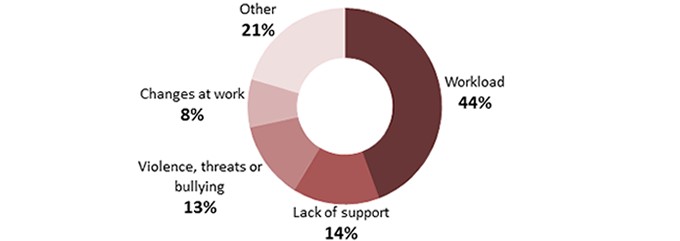This may end up being the century of the four-day work week, as companies begin experimenting with previously unheard of productivity tricks and studies seem to confirm their findings.
In the end, research is increasingly showing that workers might end up being more productive if they work less.
It’s about quality over quantity, as companies begin contemplating investments in employee work-life balances, health and safety.
According to UK’s Trade Union Congress (TUC), British workers who put in the standard 40-hour work week also clock in an extra 2.1 billion unpaid hours, with Londoners doing the most unpaid overtime, leading to a higher load of stress.
At the same time, Health and Safety Executive data, 31.2 million working days were lost due to work-related ill health and non-fatal workplace injuries in 2016/2017. Another 12.5 million work days were lost due to work-related stress, anxiety or depression. In 44 percent of cases, those stress-related work days lost were because of work overload.

(Click to enlarge)

(Click to enlarge)
Source: Health and Safety Executive
TUC General Secretary Frances O'Grady is all for the concept. And she believes a four-day work week with decent pay for everyone could happen in this century.
“In earlier centuries, workers had to fight for things like the eight-hour workdays, which was also the case in the U.S.,” O'Grady told an annual TUC gathering last week.
Times have changed, and companies must change with them, she suggested. The 21st Century has been "a time of rapid industrial disruption", O'Grady said, and it’s now time to “take back control” of the work week.
According to analysis from the research firm Global Workplace Analytics from 2015, up to 78 percent of employees who call in sick are really using that time to take care of personal things. Related: The New Ultra-Wealthy Benchmark Is $50 Million
According to a survey by staffing firm OfficeTeam, the average office employee spends 56 minutes per day on the cell phone at work. That’s nearly eight hours wasted on social media and checking personal emails.
Or, in other words, it means they’re already only working a four-day week. It’s just not official or sanctioned.
A New Zealand trust management company called Perpetual Guardian went as far as to conduct a pilot experiment in which it allowed all 240 of its employees to work four days a week for the same pay as a five-day work week.
It was said to have been a smashing success—both for the employer and employees. Now, the company’s board is reportedly considering making it permanent.
The pilot experiment—conducted by independent researchers—found that reducing the working hours from 40 to 32 in March and April had boosted productivity among all employees, who used the time to hang out with their families, exercise, or … in some cases, apparently—play Fortnite.
They also learned another important lesson: When hiring new recruits, supervisors should negotiate tasks to be performed—not contractual hours for time spent in the office.
“Otherwise you’re saying, ‘I’m too lazy to figure out what I want from you, so I’m just going to pay you for showing up,’” Barnes reportedly said. “A contract should be about an agreed level of productivity,” he added. “If you deliver that in less time, why should I cut your pay?”
Sweden ran a similar experiment in 2016 with same success. A trial in the city of Gothenburg mandated a six-hour day and officials found employees completed the same amount of work or even more. But many criticized the idea as have fewer benefits than costs.
Related: Robinhood Changed Trading Forever, Now It’s Going Public
France, likewise, signed a 35-work week into law in 2000, but businesses complained of reduced competitiveness and increased hiring costs.
Experimenting on this level is also being undertaken across the Atlantic, but some American companies seem to think it’s going to be a failure. But in the U.S., it’s probably even more urgent.
According to studies, Americans work longer hours than many people in Europe and Japan. In fact, many U.S. employees spend 50 hours at work each week.
In 2016, Amazon piloted a 30-hour work week for some employees, but they got a pay cut—earning only 75 percent of their regular salary.
We’re not sure how that pilot program worked out, specifically, but Business Insider notes that Amazon has recently advertised job openings for positions with 30-hour work weeks.
In 2008, the State of Utah mandated a four-day work week for all state employees, but then reversed it in 2011 because it failed to see any savings.
So, it may not take off in the U.S. broadly any time soon, but as billionaire Richard Branson has said: “By working more efficiently, there is no reason why people can’t work less hours and be equally, if not more effective. We need to work smarter, not longer.”
By David Craggen for Safehaven.com
More Top Reads From Safehaven.com
















